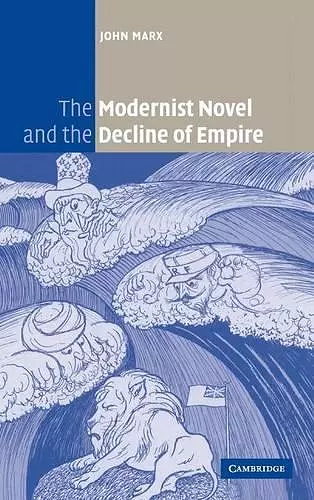The Modernist Novel and the Decline of Empire
Format:Hardback
Publisher:Cambridge University Press
Published:8th Dec '05
Currently unavailable, currently targeted to be due back around 15th April 2025, but could change
This hardback is available in another edition too:
- Paperback£37.99(9780521120814)

This book argues that Modernist novelists played an active part in the development of globalization rather than charting the decline of the Empire.
John Marx argues that the early twentieth century was a key moment in the emergence of modern globalization, not simply a period of imperial decline. Rather than mapping the Empire's end, modernists including Conrad and Woolf celebrated the shared culture of English rather than the waning imperial structures of Britain.In the early twentieth century, subjects of the British Empire ceased to rely on a model of centre and periphery in imagining their world and came instead to view it as an interconnected network of cosmopolitan people and places. English language and literature were promoted as essential components of a commercial, cultural, and linguistic network that spanned the globe. John Marx argues that the early twentieth century was a key moment in the emergence of modern globalization, rather than simply a period of British imperial decline. Modernist fiction was actively engaged in this transformation of society on an international scale. The very stylistic abstraction that seemed to remove modernism from social reality, in fact internationalized the English language. Rather than mapping the decline of Empire, modernist novelists such as Conrad and Woolf celebrated the shared culture of the English language as more important than the waning imperial structures of Britain.
Combining historical and intertextual analysis, Marx reframes the relationship of modernism, professionalism, and imperialism to emphasize the appearance of globalizing forces at the beginning of the twentieth century. -- Choice
ISBN: 9780521856171
Dimensions: 229mm x 152mm x 17mm
Weight: 520g
236 pages